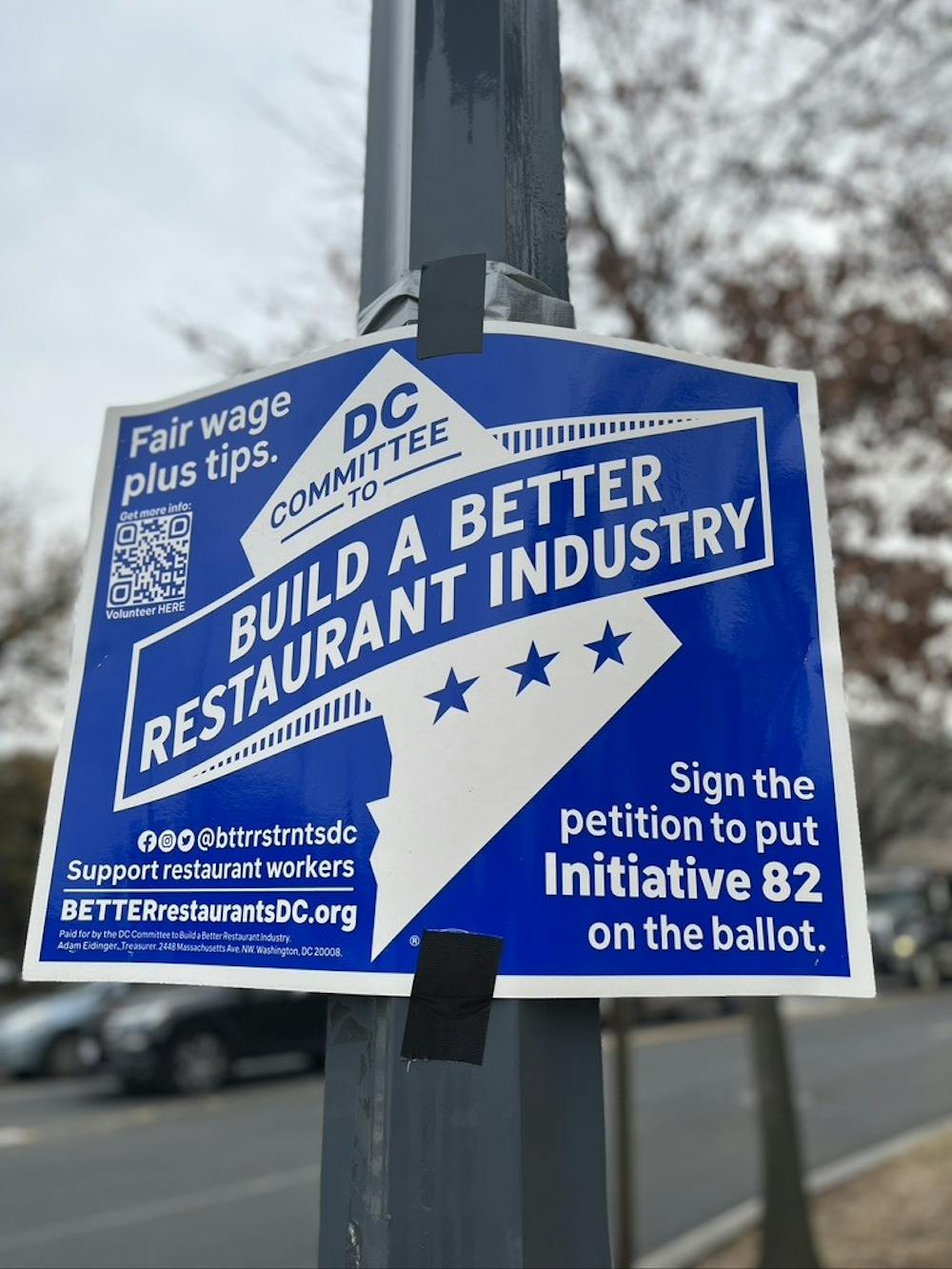A new D.C. initiative aims to raise the minimum wage for tipped workers from $5.05 an hour plus tips to the districtwide minimum wage of $15.20 an hour plus tips.
Ryan O’Leary, who introduced the initiative, graduated with a bachelor’s degree in international studies from American University in 2013 and worked as a server at multiple restaurants across D.C. on and off since beginning school at AU. While at AU, O’Leary used his earnings to pay for meals and rent. In the years since, he’s gone back and forth between working for political campaigns and in the restaurant industry.
In 2018, voters approved a referendum to raise the minimum wage for tipped workers by a majority of 55 points. However, the Restaurant Association of Metropolitan Washington ran a campaign in opposition, fearing it would lead to bosses cutting their workers’ hours and an overall decline in tips. The D.C. Council ultimately vetoed the measure despite its approval by voters.
The pandemic played a large role in O’Leary’s decision to re-petition the local government to raise the current wage for tipped workers.
“We think people are on board, with [how] COVID has happened, people now realize what their worth is,” O’Leary said. “They realize how hard it is to work in a restaurant and I think it’s time for this to finally happen.”
O’Leary also emphasized the disproportionate wage discrimination faced by women, people of color and transgender people, who receive lower wages on average.
He said that mask harassment has also been a problem in the restaurant industry. O’Leary said he has heard directly from transgender workers about their struggles with being misgendered while wearing a mask and worrying they will receive a lower tip if they correct customers.
“The whole mask thing becomes a whole issue for a lot of trans folks that I’ve spoken to and being misgendered, but not wanting to correct people because they’re giving you your tip and your livelihood,” he said.
Andie Bisk, a junior in the College of Arts and Sciences, relies on her job in the service industry to pay her rent and utilities. She is paid below minimum wage and her tips often don’t cover the difference, she said.
“You kind of have to let certain customers get what they want and speak to you in ways that aren’t exactly appropriate outside of any other setting … Just because you want to make sure that they tip you at the end,” she said.
Bisk said most AU students she knows either work a tipped position in the service industry or intern. She said oftentimes when the internship is unpaid students have to work both.
Students like Bisk are hopeful the initiative succeeds in increasing their tipped minimum wage. To appear on the ballot, organizers need to gather 5 percent of registered voters’ signatures in the next 180 days. Organizers are currently in the process of hiring petitioners to achieve the 26,000 signature minimum.





